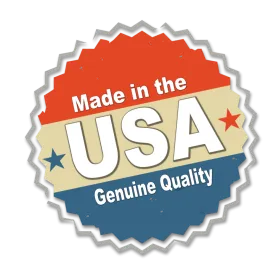Under current Federal Trade Commission (FTC) guidelines, a product may be advertised as “Made in the USA” if “all or virtually all” of the labor and materials in the product are domestic. While this standard is relatively strict, it allows a bit of flexibility in at least two situations.
First, if the product is fully manufactured in the U.S. – primarily from U.S. materials, but with a very small amount of foreign content – the FTC standard allows the product to be described as “Made in the USA.” Relatively few manufacturers rely on this option since the permissible amount of foreign content is not defined by the FTC. But the approach remains at least theoretically viable where a product’s foreign content is truly de minimis.
Second, the advertiser has the option to soften or “qualify” its Made-in-the-USA claim by disclosing, for example, that the product is made in the U.S. with foreign and domestic materials. Again, many manufacturers are leery of this approach since the FTC’s guidance on what types of “qualified” claims are permissible is not always clear. But other companies do rely on this option.
In contrast, California has enacted a statute which, read literally, prohibits using a “Made-in-the-USA” claim if any part of the product is foreign-sourced. Cal. Bus. & Prof. Code § 17533.7. In a recent decision, Paz v. AG Adriano Goldschmied, Inc. et al., No. 3:14-cv-01372 (S.D. Cal. Jun. 04, 2014), a federal district court applied the statute and provided both some good news and some bad news for manufacturers.
The good news is that the court ruled that a qualified claim disclosing the presence of foreign content – such as “Made in the U.S.A. of imported fabric and components” – is permissible, if truthful. This means that a “qualified” claim meeting the FTC standard should pass muster under California law as well.
The bad news is that the court, without any analysis, accepted the proposition that the California statute prohibits the use of a freestanding “Made in the USA” claim for a product containing any amount of foreign content, regardless how little. This is clearly stricter than the FTC’s standard. As a practical matter, relatively few manufacturers may be affected by this difference. But for any company relying on the FTC’s de minimis exception, the court’s decision is a clear warning that a violation could exist under California law.
The recent California decision is a reminder that “Made in the USA” claims pose tricky issues. Legal review is recommended in any case where the labor and materials in the product are not clearly 100% domestic.




 />i
/>i

